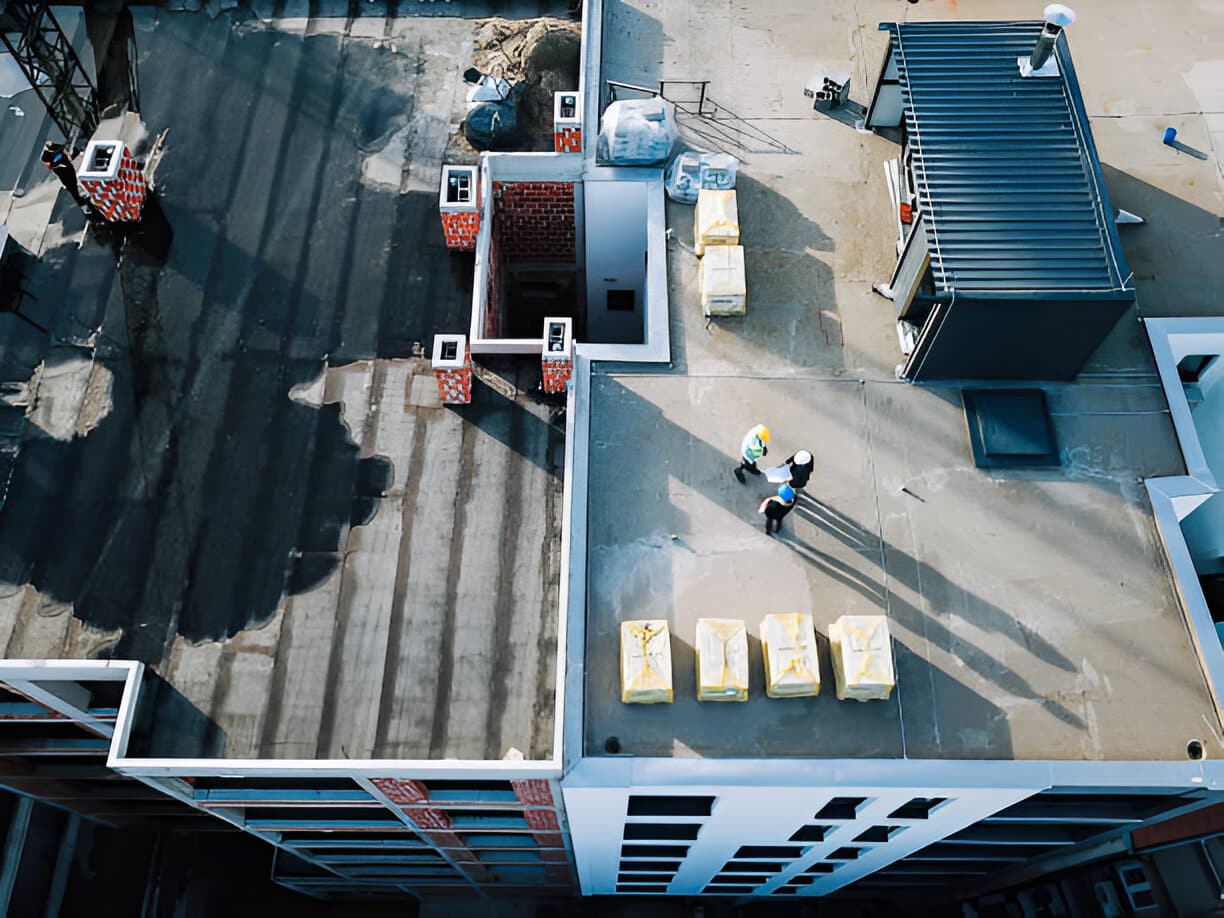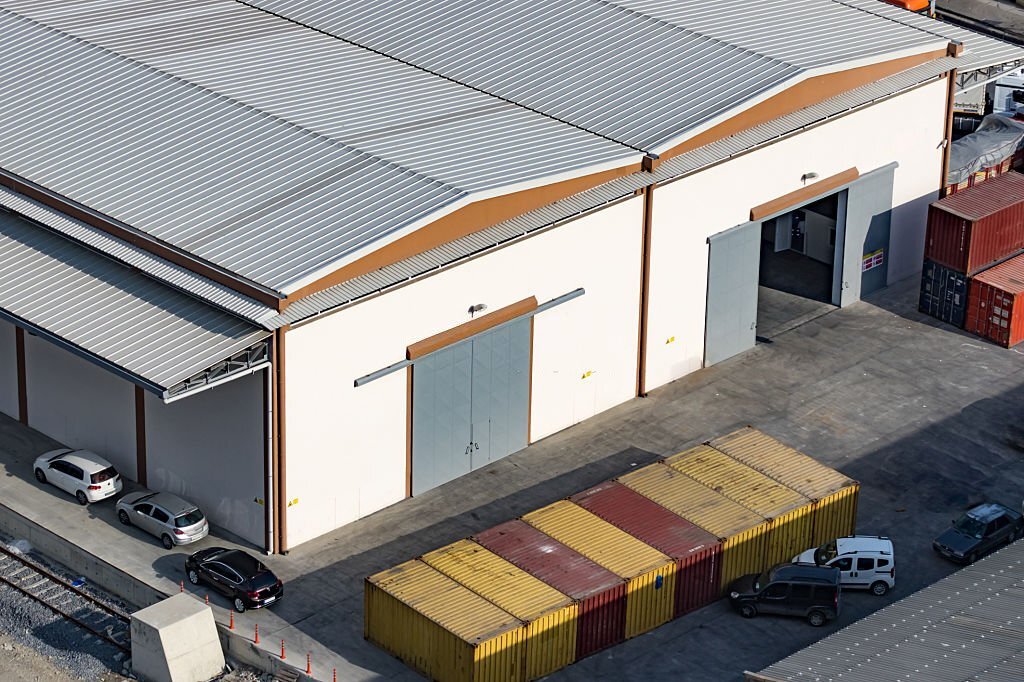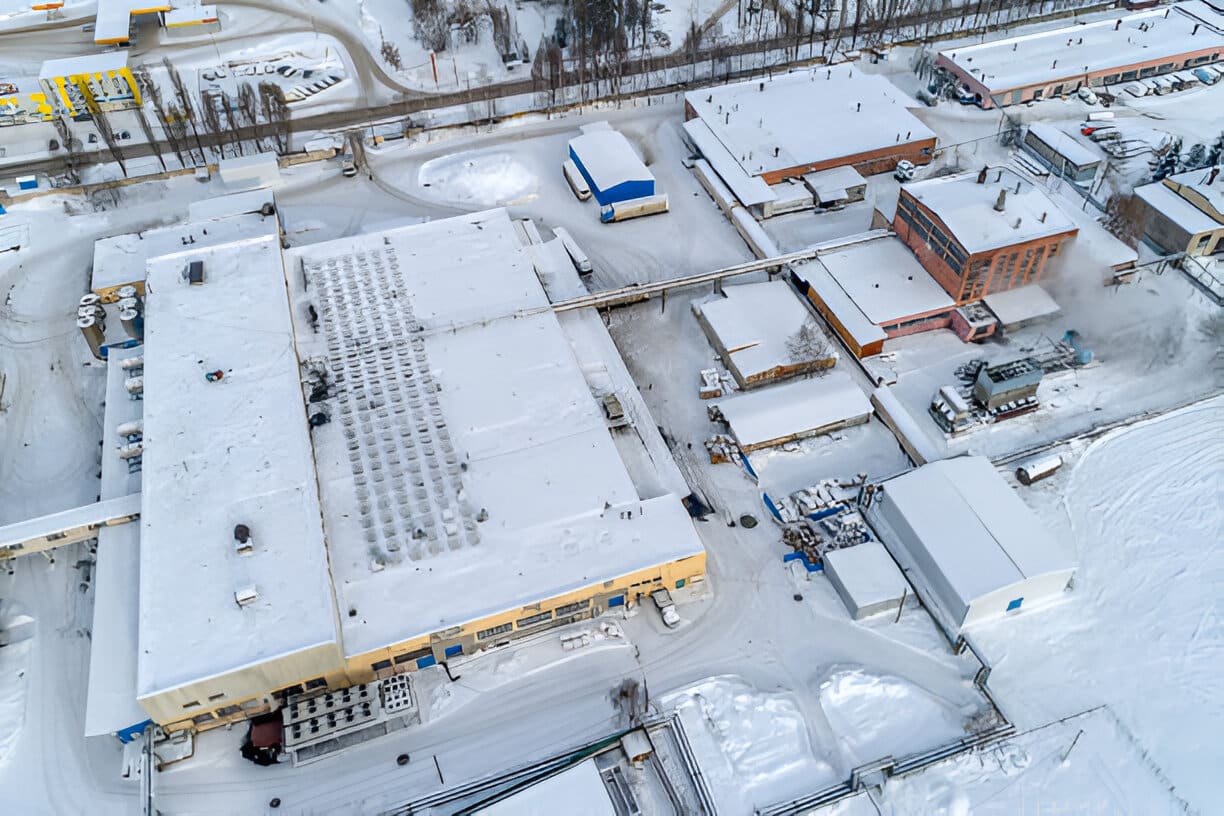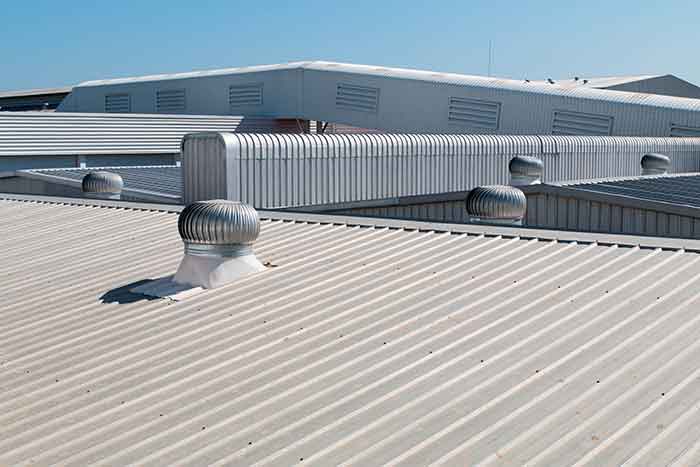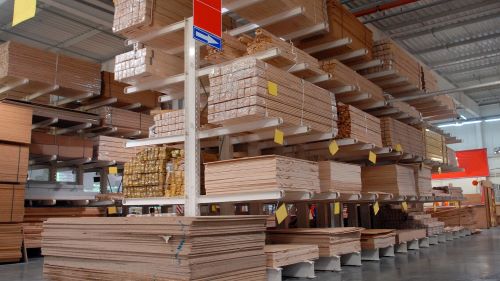
When it comes to commercial roofing, choosing the right materials is important. Not only does it affect the overall look of the building, but it also plays a major role in its durability and energy efficiency. From traditional options to modern alternatives, a consumer today has access to multiple online resources to learn more about roofing. This can help them to make an informed decision for their commercial roofing project.
Here are five of the best commercial roofing materials that can be utilized by commercial building owners.
5 Best Commercial Roofing Materials
1. Metal Roofs
Metal roofs are easy to install, lightweight, and have longer durability. A well-done commercial roofing job with metal as a base material can last a good 40 to 60 years. There are various types of metal roofs available in different shapes and sizes. Some of the most common metal roofing materials include corrugated galvanized steel, aluminum, zinc and tin, tile sheets, copper, or stainless steel. Not all metal roofing materials are the same, and it’s important to consult on their different pros and cons.
Metal roofing also provides an attractive, shiny look after it is completed. They have stronger fire resistance and are more sustainable than other options. The only drawback they have is that they are prone to corrosion. Although, adding a coat of protective surface layers can make that go away.
2. Asphalt Rolls Roofs
Asphalt rolled roofs are the perfect choice for buildings that don’t have a very steep slope. These are made from the same materials which make asphalt shingles.
Asphalt roofing is considered by many as an option for a decent commercial roofing material as they are inexpensive and comparatively easier to install on a roof.
However, asphalt rolled roofs have a concise time span. Their short life expectancy makes them last for not more than 10 years at a time. Furthermore, they require more maintenance than their counterparts as the shingles are first rolled and then joined at the seams, which could potentially cause problems in the roof as a whole.
3. EPDM (ethylene propylene diene monomer)
EPDM or Ethylene propylene diene monomer is another popular commercial roofing material. Its high durability characteristic makes it the right and long-lasting choice as a commercial roofing material. EPDM is essentially a roll-based, synthetic fibre roofing membrane also known as a thermoset roofing material.
One of the major advantages that an EPDM roof offers is its ability to resist sunlight as well as pollution. An EPDM roof is also comparatively more versatile, long-lasting, and easy to install. Since the material is considered durable, it doesn’t scratch easily and can be expected to effortlessly last as long as 20 years.
The material used in EPDM is black which helps in absorbing heat. But, this also becomes one of its drawbacks as the absorbed heat ends up putting unnecessary stress on the HVAC systems of any building.
Another drawback of an EPDM roof is that it carries the risk of getting punctured. So, in regions that are prone to hailstorms, or buildings near trees which might have branches falling over them, the roof may require constant monitoring since it may get punctured often.
Moreover, EPDM may also not be the most aesthetically pleasing commercial roof alternative to go for.
4. TPO (thermoplastic polyolefin)
A thermoplastic polyolefin roof has become a popular choice for commercial roofing in Maryland.
It is a cost-effective option for commercial roofing, comes with its own sets of advantages, and is even less expensive than EPDM roofing in many cases.
Since a TPO roof is white in colour, it has a greater ability to reflect off the heat of the sun. TPO is light in weight and can be installed in multiple ways. One option for installing it is by fastening the material to the roof or using adhesives on the roof deck.
A TPO roof works quite well against corrosion and breakdown. It is also considered to have properties that don’t make it prone to algae. This can help save money since there may be no need to get the roof pressure washed from time to time.
However, looking at the other side, a TPO roof also features some drawbacks.
Firstly, due to its lower price and high popularity, it has become quite common, and at times might not come from a very reputed manufacturer since there are a lot of knockoffs in the market. Another major drawback that TPO carry with them is that they are not fire-resistant.
Therefore, consulting with a reputed Maryland roofing company before moving forward with TPO is usually the right call. Roofing materials and more will all be included in your roofing estimate.
5. PVC (polyvinyl chloride)
PVC or polyvinyl chloride is another roofing material that can be utilized for commercial roofing. It consists of two separate layers of PVC roof material. The polyester layer in this works as a layer that provides strength between the layers. These separate layers further have different solutions involved that make these materials quite flexible and also resistant to UV rays.
If they are applied on a flat roof, they have a longer lifespan than usual. Another plus point is that these roofs are resistant to moisture, less likely to catch fire and don’t react to chemicals.
One drawback, however, for PVC is that it is comparatively more expensive than its other commercial roofing counterparts. They are also quite susceptible to shrinking which may end up causing some leakage issues.
Conclusion: What’s the Best Commercial Roofing Material?
Getting the right roof for a commercial building in Maryland is an important decision. The important thing is that it turns out to become a long-term investment. Hence, it is important to consider a long list of factors, before finalizing on a single type of roof, ensuring you get the most of your new roof installation.
With every commercial roof material mentioned above, comes a long list of advantages and disadvantages that need to be taken care of. At the end of the day, things like personal preference, the area where the roof will go up, and the final use come into play.
Thus, it is always better to get in touch with a commercial roofing company to get a better idea of the right type of roof for any type of commercial building.

